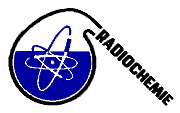Speaker
Róbert Janovics
(Institute of Nuclear Research of the HAS, Debrecen, Hungary)
Description
The new Hungarian National Radioactive Waste Disposal Facility was established in the granite of the Mórágy Block Mountains to store low and intermediate level radioactive waste (L/ILW) originating from the Paks Nuclear Power Plant. The safe operation of the radioactive waste disposal facilities requires a long-term environmental monitoring to gain information about the radiation properties of the site together with the radiation exposure of the personnel and the environmental media. Before the start of the operation of the facility the environmental characteristics of the site and its vicinity, i.e. the so-called zero level was determined.
The determination of the zero level of the nuclear facilities is inevitable as the evaluation of the measurement data in the course of the operation should be related mainly to this zero level. In the course of the measurements the monitoring of the environmental elements i.e. air, soil, water (springs, streams, precipitation), fall-out, wash-out, plant and animal samples was performed from several points of view. From the samples collected radiocarbon, tritium, strontium-90, gamma emitters, gross alpha, gross beta and field gamma measurements were carried out.
The results are obtained before of the operation of the facility, they can approximately be considered as the Hungarian background data.
Primary author
Róbert Janovics
(Institute of Nuclear Research of the HAS, Debrecen, Hungary)
Co-authors
István Barnabás
(Public Agency for Radioactive Waste Management, Paks, Hungary)
Dr
László Palcsu
(Institute of Nuclear Research of the HAS, Debrecen, Hungary)
László Papp
(Institute of Nuclear Research of the HAS, Debrecen, Hungary)
Dr
Mihály Molnár
(Institute of Nuclear Research of the HAS, Debrecen, Hungary)
Mihály Veres
(Isotoptech Co. Ltd., Debrecen, Hungary)
Zoltán László
(Public Agency for Radioactive Waste Management, Paks, Hungary)
Zoltán Major
(Institute of Nuclear Research of the HAS, Debrecen, Hungary)
Árpád Bihari
(Institute of Nuclear Research of the HAS, Debrecen, Hungary)

